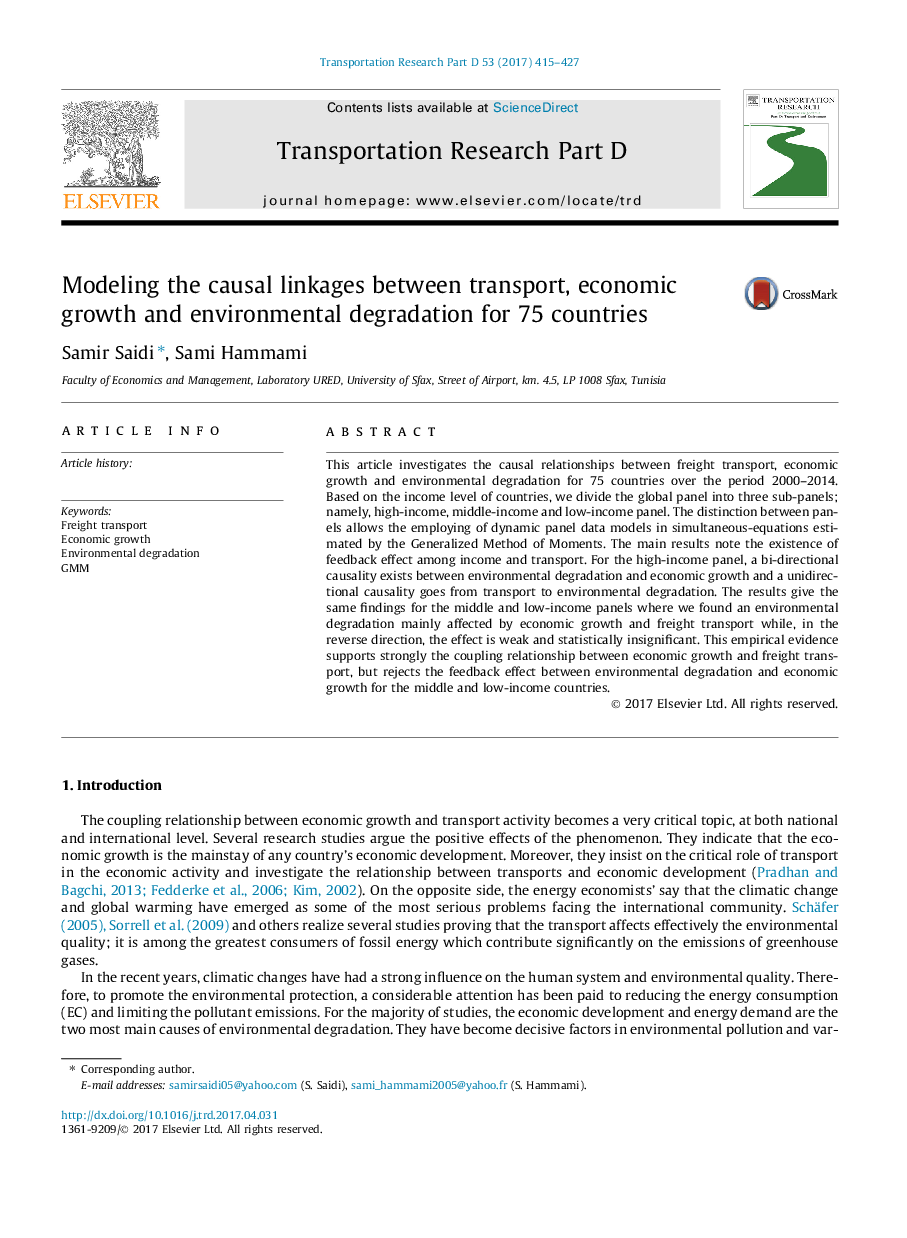ترجمه فارسی عنوان مقاله
مدل سازی ارتباطات علی بین حمل و نقل، رشد اقتصادی و تخریب محیط زیست برای 75 کشور
عنوان انگلیسی
Modeling the causal linkages between transport, economic growth and environmental degradation for 75 countries
| کد مقاله | سال انتشار | تعداد صفحات مقاله انگلیسی |
|---|---|---|
| 136324 | 2017 | 13 صفحه PDF |
منبع

Publisher : Elsevier - Science Direct (الزویر - ساینس دایرکت)
Journal : Transportation Research Part D: Transport and Environment, Volume 53, June 2017, Pages 415-427
ترجمه چکیده
این مقاله به بررسی رابطه بین حمل و نقل حمل و نقل، رشد اقتصادی و تخریب محیط زیست در 75 کشور در طول سالهای 2000 تا 2009 می پردازد. بر اساس سطح درآمد کشور، پانل جهانی را به سه زیر پانل تقسیم می کنیم. یعنی پانل با درآمد بالا، درآمد متوسط و کم درآمد. تمایز بین پانل ها امکان استفاده از مدل های پانل پانل داده ها را در معادلات همزمان برآورد شده توسط روش عمومی از لحظه ها می دهد. نتایج اصلی توجه به وجود تأثیر بازخورد در درآمد و حمل و نقل. برای پانل با درآمد بالا، علیت دو طرفه بین تخریب محیط زیست و رشد اقتصادی وجود دارد و یک علیت یک جهته از حمل و نقل به تخریب محیط زیست می گذرد. نتایج نتایج مشابهی را برای پانل های متوسط و کم درآمد ارائه می دهد که در آن ما تخریب محیط زیست را به طور عمده تحت تأثیر رشد اقتصادی و حمل و نقل قرار می دهیم در حالی که در جهت معکوس این اثر ضعیف است و از لحاظ آماری ناچیز است. این شواهد تجربی قویا رابطه بین رشد اقتصادی و حمل و نقل را پشتیبانی می کند اما تأثیر بازخورد بین تخریب محیط زیست و رشد اقتصادی را برای کشورهای ثروتمند و کم درآمد را رد می کند.

